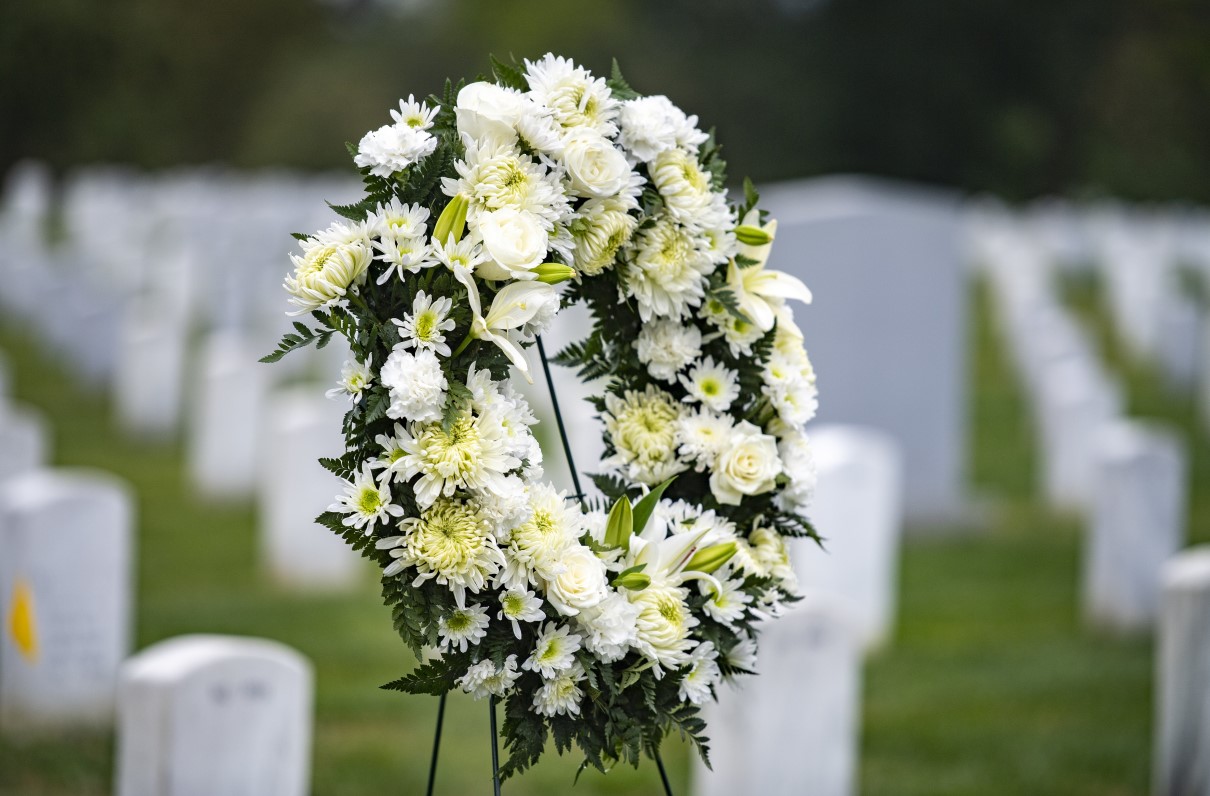Now more than ever, your voice matters in the debate over proposed eligibility changes to Arlington National Cemetery.
On Sept. 22, the Arlington National Cemetery Advisory Council (ANCAC) convened to review the changes to ANC and discuss the Federal Register public comment period currently underway. You can read MOAA’s recap of the changes or view the entire proposed rule.
MOAA and The Military Coalition (TMC) – a group of organizations representing more than 5.5 million members of the uniformed services past and present, families, and survivors – submitted written statements in support of grandfathering those currently eligible and conducting non-contiguous expansion to ensure ANC operations with full military honors can continue well into the future.
Unfortunately, the ANCAC, which reviews proposals and makes recommendations to the secretary of the Army, dismissed these requests. But hundreds of stakeholders already have weighed in with their opinions on the move, and many others have reached out to MOAA to learn how they can have their say.
Here are the details on two options – submitting a formal comment as part of the regulation-review process, and asking your lawmakers to push back on this shortsighted process. Consider doing both.
[TAKE ACTION: Submit a Comment | Contact Your Lawmakers]
The public comment period opened Sept. 15 and will close Nov. 16. MOAA will continue to encourage our members and others to comment. Click this link to go directly to the comment page. Or, you can read the full proposed rule at this link and make your comments there by clicking the “SUBMIT A FORMAL COMMENT” button in the upper right corner.
It is important for your comments to be yours alone, and not the product of mass mailings. Use your words – and, if applicable, say what the changes will mean to you or your family’s future plans. Not sure what to write? Consider these arguments and recommendations culled from MOAA’s statement to ANCAC:
Arguments Against the Changes
- The proposal will force those who have already made end-of-life plans to make difficult decisions – in some cases, the family will have to decide on behalf of the deceased with no previous input or planned options.
- The changes, which would force more people to a different cemetery, do not account for all-important military honors.
- The proposed eligibility, emphasizing combat and the Purple Heart, diminishes the value of career-long service for others who wore the uniform, particularly those who shared similar risks in the air and at sea.
- As proposed, the changes could end up being discriminatory against some military branches and specialties, and against those whose gender prevented them from serving in certain capacities. MOAA has requested, and has been unable to obtain, any reliable information from DoD or the Army on how the proposed changes impact eligibility from each service or how the changes impact eligibility by gender. We can only conclude such information was not considered in any meaningful way when the proposal was developed. Without this information, it is fundamentally unfair and disrespectful to the entire veteran community to rush through these new exclusions on Arlington eligibility.
- The proposal allows for eligibility of political appointees, possibly displacing a more deserving servicemember. It’s an unpopular change among many MOAA members; any changes that narrow eligibility for those who served a career should not be used to create space for political appointees not otherwise eligible.
MOAA’s Recommendations
- Grandfather those who are currently eligible to account for 20-year retirees who have already intended ANC to be their final resting place.
- Expand ANC using non-contiguous federal land, which would allow years to figure out how to bestow similar honors at partnered or sanctioned locations. MOAA is concerned non-contiguous expansion was not considered with the same fervor applied to eligibility.
- Change the time horizon to 90 years. The planning criteria for extending the life of ANC for 150 years was arbitrary and spans over the next five generations. Conditions for the past five generations are not a reasonable yardstick when looking five generations forward.
- Extend the period of implementation. A protracted period of three to four years would afford time to create a reservation system to gauge intent for those currently eligible and examine the creation of ANC annexes through noncontiguous expansion, as specified in Public Law 114-158 and outlined above. Congressional approval and oversight for the final determination is needed to ensure the intent of this law is met.
What Is Next?
When the Federal Register public comment closes, it will take over a year to reconcile and resolve legal challenges before approval. Existing ANC standards will remain in effect during that time.
Intervention from elected officials may be required to change course for reduced eligibility for our national cemetery. Congressional staff members have already indicated It is not too early to reach out to your elected officials and voice your concerns.
MOAA Knows Why You Serve
We understand the needs and concerns of military families – and we’re here to help you meet life’s challenges along the way. Join MOAA now and get the support you need.

